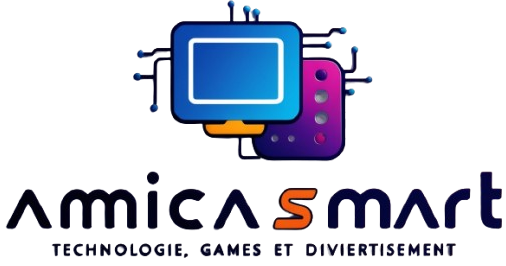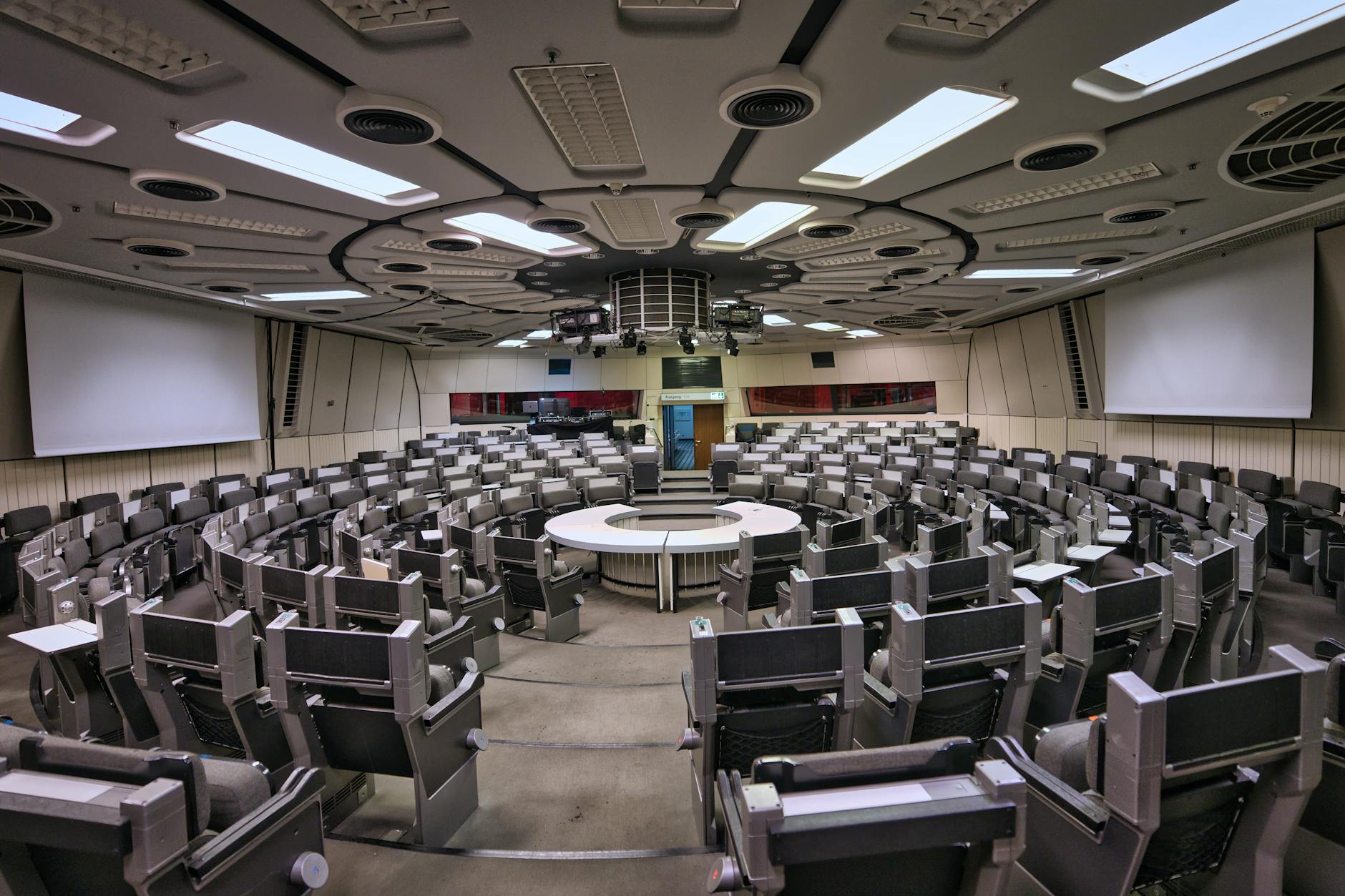Decoding 2025 Tech Trends for Business Success
Navigating the Digital Frontier: Top 2025 Tech Trends Shaping Business Success
Estimated reading time: 9 minutes
Key Takeaways
- AI Integration is Crucial: Artificial intelligence, through automation, intelligent chatbots, and low-effort features, is becoming indispensable for enhancing efficiency and user experience across business operations.
- Web Development Focuses on Performance and Agility: Modern web practices prioritize speed (Next.js, React), flexible architectures (Headless CMS, Micro Frontends), and inclusive design, ensuring fast, scalable, and accessible digital environments.
- Cross-Platform Mobile Excellence: Frameworks like Flutter and React Native remain dominant for efficient mobile app development, allowing businesses to reach wider audiences with a single codebase while maintaining high performance.
- Cloud and DevOps are Foundational: Serverless architectures offer scalability and cost efficiency, while robust CI/CD automation and strategic cloud migration are essential for agile and secure digital transformation.
- Strategic Digital Transformation: Businesses must integrate these evolving tech trends – from AI and web development to mobile and cloud – to optimize workflows, foster innovation, and create new revenue streams.
Table of Contents
- The AI Imperative: Automation, Intelligence, and Unprecedented Efficiency
- The Evolving Web: Speed, Agility, and Immersive Experiences
- Mobile App Innovation: Cross-Platform Excellence and Native Performance
- Cloud Computing and DevOps: Scalability, Security, and Agility
- Digital Transformation Strategies: Unlocking Business Potential
- The AITechScope Advantage: Your Partner in Navigating 2025 Tech Trends
- FAQ Section
The pace of technological change is not just accelerating; it’s redefining the very fabric of business operations. As we move into 2025, a confluence of advancements in artificial intelligence, web development, mobile applications, cloud computing, and user experience design is creating unprecedented opportunities for innovation and growth. For business professionals, entrepreneurs, and tech-forward leaders, understanding these 2025 tech trends is not merely an academic exercise—it’s a strategic imperative. This comprehensive guide will dissect the most impactful shifts, offering practical insights and demonstrating how your business can leverage them to achieve greater efficiency, drive digital transformation, and optimize workflows.
At AI TechScope, we believe in empowering businesses to harness the full potential of these emerging technologies. Our expertise in AI-powered automation, n8n workflow development, and intelligent delegation helps organizations navigate this complex landscape, turning technological potential into tangible competitive advantage. Let’s delve into the trends that are set to redefine the digital world.
The AI Imperative: Automation, Intelligence, and Unprecedented Efficiency
Artificial intelligence continues its march from speculative futurism to indispensable business tool. The 2025 tech trends reveal AI’s deepening integration into every layer of the enterprise, from customer interaction to backend operations. This is where AI automation for businesses truly shines, offering solutions that dramatically reduce manual effort, minimize errors, and free up human talent for more strategic tasks.
1. Intelligent Automation with No-Code/Low-Code Platforms
The days of needing extensive coding knowledge to implement AI are rapidly fading. No-code and low-code platforms, particularly when infused with AI capabilities, are democratizing automation. Tools like n8n, for example, allow businesses to create sophisticated workflow automation tools that connect disparate applications, automate repetitive tasks, and even integrate advanced AI models without writing a single line of code.
- Practical Takeaway: Small and medium-sized businesses, in particular, can achieve significant efficiency gains. Automating repetitive tasks, such as data entry, report generation, email management, or lead qualification, can save 5-10 hours per week per employee. This isn’t just about saving time; it’s about reallocating human capital to innovation and customer engagement. AI TechScope specializes in building these intricate, AI-powered n8n workflows, tailoring them to your specific business processes for maximum impact.
2. Chatbot Automation and Conversational AI
Chatbot automation has evolved beyond simple rule-based interactions. Modern AI chatbots for customer service are powered by sophisticated natural language processing (NLP) and machine learning, enabling them to understand complex queries, provide personalized responses, and even complete transactions.
- Real-World Application: Imagine a small business using a chatbot to handle FAQs, book appointments, or qualify leads 24/7. These chatbots can integrate with CRM systems, marketing platforms, and support desks, providing seamless enterprise digital adoption. This not only enhances the customer experience but also significantly reduces the workload on human customer service teams, allowing them to focus on more complex issues. We’ve seen real workflows where businesses use chatbots to save time, providing instant support and improving lead conversion rates.
3. Low-Effort AI Features for Enhanced User Experience
Integrating AI features into existing products and services no longer requires massive overhauls. Companies are finding “low-effort” ways to embed intelligence that delights users and provides a competitive edge. A prime example of this innovation comes from ElevenLabs, a voice AI company that is now allowing authors to create and publish AI-generated audiobooks on its platform. This not only democratizes audiobook creation but also showcases the power of AI to transform content delivery and consumption.
- Practical Takeaway: For SaaS product optimization or any digital service, consider how AI can subtly enhance user experience. This could be personalized recommendations, intelligent search functions, AI-powered content generation (like ElevenLabs for audio), or smart data insights. These features can dramatically improve user engagement and retention. AI TechScope’s AI consulting services can help identify and implement these strategic, low-effort AI integrations tailored to your product or service.
The Evolving Web: Speed, Agility, and Immersive Experiences
Web development in 2025 is characterized by a relentless pursuit of performance, scalability, and an exceptional user experience. Modern UI/UX design is not just about aesthetics; it’s about creating intuitive, fast, and accessible digital environments.
1. Next.js and React Performance for Blazing Fast Websites
The demand for instantaneous web experiences means performance is paramount. Frameworks like Next.js, built on React, are becoming the standard for building lightning-fast, SEO-friendly websites. Next.js offers server-side rendering (SSR), static site generation (SSG), and image optimization out-of-the-box, drastically reducing page load times.
- Practical Takeaway: For businesses, especially small businesses and startups, a fast marketing site built with Next.js can significantly improve SEO rankings, reduce bounce rates, and enhance user engagement. We’ve seen simple React performance fixes reduce page load by seconds, which can translate to a 60% reduction in load time for clients. This isn’t just a technical detail; it directly impacts conversion rates and customer satisfaction. AI TechScope excels in developing high-performance websites using Next.js, providing a robust and scalable foundation for your online presence.
2. Headless CMS and Decoupled Architectures
Traditional monolithic content management systems are giving way to headless CMS solutions, such as a headless WordPress setup. This approach decouples the content backend (where content is stored) from the frontend (how it’s displayed), allowing developers greater flexibility to use modern frameworks like React or Next.js for the frontend while still leveraging familiar content authoring tools.
- Practical Takeaway: This provides greater agility, security, and scalability. It’s ideal for businesses needing to deliver content across multiple channels (web, mobile apps, IoT devices) from a single source, enabling more efficient content management and digital innovation for startups. Businesses can build powerful, lightweight WordPress sites without the bloat, improving SEO and overall site performance.
3. Micro Frontends and Modular Development
For larger, complex web applications, micro frontends are gaining traction. This architectural style breaks down a monolithic frontend into smaller, independently deployable units, allowing different teams to work on different parts of the application concurrently.
- Practical Takeaway: While offering benefits in terms of team autonomy and scalability for large enterprises, it’s crucial to understand when they help and when they hurt. For smaller teams or simpler applications, the overhead might outweigh the benefits. Strategic architecture planning is key. AI TechScope’s consulting services can help businesses evaluate the right architectural patterns, ensuring software development in 2025 aligns with their specific needs and avoids unnecessary complexity.
4. Modern UI/UX Design and Accessibility
Responsive UI design is a given, but modern UI/UX design now places a heavy emphasis on accessibility. Designing accessible buttons, ensuring proper color contrast, and providing keyboard navigation are no longer optional extras; they are fundamental to creating inclusive digital experiences.
- Practical Takeaway: Prioritizing accessibility not only expands your audience but also often leads to better overall design and user experience for everyone. A well-designed, intuitive interface reduces user frustration and increases engagement, directly impacting business outcomes.
Mobile App Innovation: Cross-Platform Excellence and Native Performance
Mobile app development in 2025 continues to be a critical channel for customer engagement, and the debate between native and cross-platform solutions remains vibrant.
1. Flutter vs. React Native in 2025
For businesses looking to launch mobile apps efficiently, cross-platform frameworks like Flutter and React Native are dominant. Both offer the ability to write a single codebase that deploys to iOS and Android, significantly reducing development time and cost.
- Practical Takeaway: In 2025, Flutter continues to gain ground due to its excellent performance, “build once” philosophy, and beautiful UI capabilities. React Native, with its JavaScript foundation, remains popular, especially for teams with existing web development expertise. The choice between Flutter vs React Native in 2025 often comes down to specific project requirements, team skillset, and the desired level of native feel. For startups looking to get to market quickly, both offer compelling advantages. AI TechScope can guide your decision-making, helping you choose which mobile framework is best for your startup and even assist in building a simple cross-platform app from idea to play store.
2. Mobile App UI Trends and Performance Optimization
Beyond the framework, mobile app UI trends focus on intuitive navigation, minimalist design, and performance optimization techniques. Smooth animations, fast loading times, and a seamless user journey are paramount.
- Practical Takeaway: Regular performance optimization techniques, including code splitting, lazy loading, and efficient state management, are crucial for retaining users. A slow or clunky app will quickly be abandoned.
Cloud Computing and DevOps: Scalability, Security, and Agility
Cloud migration strategy and robust DevOps practices are foundational for any business aiming for digital transformation.
1. Serverless Architecture for Scalability and Cost Efficiency
Serverless computing, particularly on platforms like AWS, represents a paradigm shift in backend development. Businesses can deploy code without managing servers, paying only for the compute time consumed.
- Practical Takeaway: This offers immense benefits for startups and established businesses alike, enabling the creation of a cost-efficient backend that scales automatically with demand. It eliminates the overhead of server provisioning, patching, and maintenance, allowing teams to focus solely on application logic. A serverless AWS cost example often shows significant savings compared to traditional server models, making it an attractive option for startups seeking to optimize infrastructure costs. AI TechScope provides expert guidance on serverless backend for startups, helping you design and implement scalable, cost-effective cloud solutions.
2. CI/CD Automation and DevOps Best Practices
Continuous Integration/Continuous Deployment (CI/CD) pipelines are no longer just for large enterprises. For small teams, automated deployments without the headache are a game-changer. CI/CD automation ensures that code changes are frequently integrated, tested, and deployed, reducing errors and accelerating release cycles.
- Practical Takeaway: Tools like GitHub Actions deploy tutorials demonstrate how even CI/CD small team practices can implement robust practices, ensuring consistent, high-quality software delivery. This is a cornerstone of modern software development 2025, fostering a culture of rapid iteration and reliability. AI TechScope offers consulting on DevOps best practices, helping you set up efficient CI/CD automation pipelines that streamline your development process.
3. Strategic Cloud Migration
Moving legacy applications to the cloud without breaking them requires a carefully planned cloud migration strategy. This often involves re-platforming, re-architecting, or re-hosting applications to take full advantage of cloud-native services.
- Practical Takeaway: A well-executed cloud migration can lead to reduced operational costs, improved scalability, enhanced security, and greater business agility. It’s a critical step in any digital transformation strategy, enabling better resource utilization and fostering tech innovation for small businesses.
Digital Transformation Strategies: Unlocking Business Potential
These individual tech trends converge to form powerful digital transformation strategies. For business professionals, the goal is to leverage this technology to optimize workflows, create new revenue streams, and improve customer satisfaction.
- Workflow Optimization Tools: The integration of AI, cloud, and automation tools creates powerful workflow optimization tools. From automated customer support to intelligent data analysis, businesses can streamline operations across all departments.
- SaaS Product Optimization: For SaaS providers, integrating AI and modern web technologies means smarter, faster, and more intuitive products that delight users and stand out in a crowded market.
- Enterprise Digital Adoption: The key is not just implementing technology, but ensuring widespread adoption and integration within the organization. This requires strategic planning, training, and a focus on user experience.
The AITechScope Advantage: Your Partner in Navigating 2025 Tech Trends
At AITechScope, we understand that staying ahead of these 2025 tech trends can be daunting. Our mission is to simplify this complexity and provide actionable solutions. We are a leading provider of virtual assistant services, specializing in harnessing the power of AI to transform your business operations.
- AI Automation & Consulting: We design and implement custom AI automation solutions, from intelligent chatbots to complex n8n workflows, empowering your business to reduce costs, enhance efficiency, and scale operations. Our AI consulting helps you identify the most impactful AI applications for your unique challenges.
- Web & Mobile Development: Whether you need a lightning-fast marketing site built with Next.js, a robust headless CMS integration, or a cross-platform mobile app, our team delivers high-performance, user-centric solutions. We focus on performance optimization techniques and modern UI/UX design to ensure your digital presence stands out.
- DevOps & Cloud Strategy: We help businesses adopt DevOps best practices, set up CI/CD automation, and implement cost-effective serverless architectures, ensuring your infrastructure is scalable, secure, and agile.
- Intelligent Delegation & Virtual Assistant Services: Beyond just tools, we offer a unique approach to intelligent delegation. Our AI-powered virtual assistants are trained to handle a wide range of tasks, from administrative support to advanced data processing, allowing your team to focus on core competencies and strategic initiatives.
The digital landscape of 2025 presents a wealth of opportunities for those prepared to embrace change. By understanding and strategically applying these tech innovations, your business can achieve unprecedented levels of efficiency, drive meaningful digital transformation, and unlock new avenues for growth.
Ready to transform your business with cutting-edge AI automation and expert consulting?
Don’t let the future of technology pass you by. Partner with AITechScope to navigate these 2025 tech trends and implement solutions that drive real business value.
Contact AITechScope Today to Explore Our AI Automation and Consulting Services!
FAQ Section
- What are the key AI trends for businesses in 2025?
- How can businesses leverage no-code/low-code AI platforms?
- What web development trends are important for performance and scalability?
- Which mobile app frameworks are dominant in 2025 for cross-platform development?
- What are the benefits of serverless architecture for startups?
- How can AITechScope help businesses with 2025 tech trends?
What are the key AI trends for businesses in 2025?
In 2025, key AI trends for businesses include intelligent automation with no-code/low-code platforms, advanced chatbot automation and conversational AI for customer service, and the integration of low-effort AI features for enhanced user experience (e.g., AI-powered content generation, personalized recommendations).
How can businesses leverage no-code/low-code AI platforms?
Businesses can leverage no-code/low-code AI platforms to democratize automation without extensive coding knowledge. Tools like n8n, infused with AI, allow for the creation of sophisticated workflow automation, connecting applications, automating repetitive tasks (like data entry or email management), and integrating advanced AI models to significantly improve efficiency.
What web development trends are important for performance and scalability?
Important web development trends for performance and scalability in 2025 include using frameworks like Next.js (built on React) for lightning-fast, SEO-friendly websites, adopting headless CMS and decoupled architectures for greater agility, and considering micro frontends for complex applications to enable modular development and team autonomy.
Which mobile app frameworks are dominant in 2025 for cross-platform development?
In 2025, Flutter and React Native remain the dominant cross-platform frameworks for mobile app development. Both allow developers to write a single codebase for deployment on both iOS and Android, offering significant reductions in development time and cost, with Flutter gaining ground for its performance and UI capabilities.
What are the benefits of serverless architecture for startups?
Serverless architecture offers immense benefits for startups, primarily enabling a cost-efficient backend that scales automatically with demand. It eliminates the overhead of server provisioning and maintenance, allowing startups to pay only for the compute time consumed, thus optimizing infrastructure costs and freeing teams to focus on core application logic.
How can AITechScope help businesses with 2025 tech trends?
AITechScope helps businesses navigate 2025 tech trends by providing custom AI automation solutions (e.g., chatbots, n8n workflows), expert AI consulting, high-performance web and mobile development (Next.js, headless CMS, cross-platform apps), DevOps and cloud strategy (CI/CD, serverless architectures), and intelligent delegation through AI-powered virtual assistant services.






